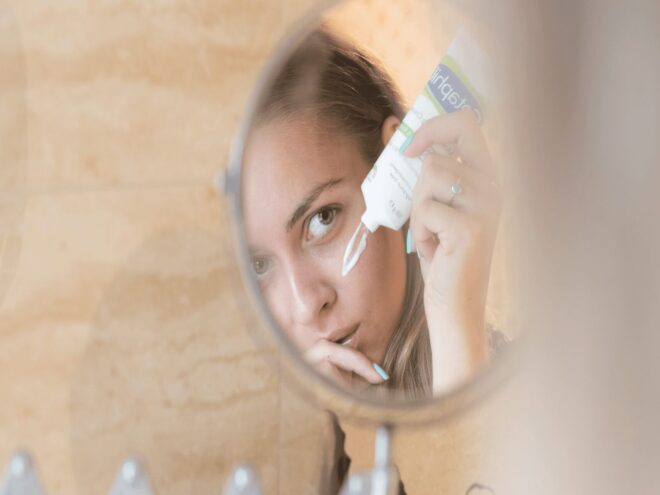Wellness • 12/25/2023
What Is Aromatherapy? The Science and Benefits

Revivalist is a reader-supported endeavor and our posts may contain affiliate links. When you buy through links on our site, we may earn an affiliate commission.
You know a whiff of your favorite fragrance can transport you to another place and time. However, can certain scents heal what ails you? The science says yes. What is aromatherapy, how does it work, and how can you reap the benefits?
Fortunately, this form of care is accessible to anyone. Even folks with nothing but moths in their wallets can learn how to make homemade essential oils with little more than a carrier base and a bundle of lavender or rose petals. Commercial diffusers often cost less than $30, and a small spritz bottle offers refreshment anytime. Here’s all you should know about what aromatherapy is, how to use it and select the best scents for your unique needs.
How Does Aromatherapy Work?
Aromatherapy is the science of activating scent receptors in your nose, coaxing them to send the right messages to your brain, which then provides direction to your body. The fragrances you inhale travel directly from the olfactory nerves to your amygdala, your brain’s emotional center.
This part of your brain does more than determine mood, however. It influences your autonomic nervous and endocrine systems and activates or calms your fight-or-flight response through various impulses and the release of hormones and neurotransmitters. Therefore, it affects your behavior and your bodily functions.
New research even implicates your amygdala in immune function, which doesn’t surprise folks who have long used eucalyptus or pine during cold and flu season. Many people with chronic conditions have co-existing anxiety and depression, and the same inflammation may create symptoms of both. Fortunately, that means aromatherapy may also ease some of your daily aches and pains.
Scientific Studies Investigating Aromatherapy
Several studies have shown the efficacy of aromatherapy in treating various mental and physical disorders. For example:
- A 2023 meta-analysis found that aromatherapy effectively alleviated test anxiety in college students.
- A 2022 study found aromatherapy effective for relieving anxiety among cancer patients.
- Another 2022 meta-analysis found that aromatherapy is an effective complementary therapy for cardiovascular disease patients, easing stress and improving sleep quality.
- A 2023 study out of West Virginia University shows aromatherapy is effective in helping patients with substance-use disorder.
Although this field of research is relatively new, more studies continue. Researchers are currently investigating aromatherapy’s potential to prevent and treat various diseases. They also continue their work into developing the best protocols for using these methods for anxiety, depression and insomnia relief.
What’s the Best Way to Use Aromatherapy?
Now that you know what aromatherapy is, you’re convinced that it works — or you’re willing to give it a try, given the low cost and potential reward. Your next question becomes: what is the best way to use this ancient practice for your modern needs?
Fortunately, there are dozens of fun ways to use your favorite essential oil. The most obvious is a diffuser. You can find USB and AC-powered versions in various shapes and sizes. Some use special stones to do the work, but most use a few drops of oil in water steamed to a high temperature to release the aroma.
Essential oil diffuser: $21.24 on Amazon
However, consider these other fun ways to wear your favorite scent:
- Make perfume: Soak your favorite aromatherapy herbs or add a few drops of oil to an alcohol base to create a signature fragrance direct from nature.
- Scent your bathwater: Add a few drops — or some flower petals or tea bags — to your bathwater.
- Make candles: Soy burns cleaner than paraffin and lasts longer. A few drops of your favorite essential oil in the melted wax provides a beautiful way to light and scent your home.
- Make soap: It’s not hard to get the knack of making homemade soap, and you can layer your favorite fragrance with this method.
- Mix it with lotion: Use an unscented base or pure coconut oil, adding your favorite essential oil until you get the fragrance you desire.
- Repurpose plug-ins: Do you know those plug-in wall diffusers with the glass or plastic bottles you replace? All you really need are new reeds. Pull out the old one, fill the bottle compartment halfway with your favorite fragrance, insert a new reed and give your home a signature scent that’s much nicer than the chemically-laden ones manufacturers use.
What Aromatherapy Oils Work for Anxiety?
Anxiety relief may be the most common aromatherapy use. Fortunately, there are several that help in this purpose. Many are equally effective for insomnia, so use caution. You might blend a relaxing scent like chamomile with an uplifting one like orange for calm and focus throughout the workday, then shift to a purely soothing blend at night.
1. Lavender
Lavender has a longstanding reputation as a sleep aid, and a few spritzes of this essential oil on your pillow can lull you into dreamland. Ingesting the herb is also curative. Perhaps wind down with a cup of lavender and chamomile tea, complete with warm milk and a bed scented with the fragrance?
Lavender essential oil: $9.99 on Amazon
2. Frankincense
Frankincense has a reputation as a calming agent since ancient Egyptian times. It was one of the gifts the magi brought in the Bible. Modern studies confirm it can slow breathing rates and induce a meditative state, making it an ideal pairing if you practice yoga nidra before bed.
Frankincense essential oil: $9.99 on Amazon
3. Ylang-Ylang
This aromatherapy scent is perfect for the bedroom. While it induces deep relaxation, it also wakes up your sensuality and can make you feel more amorous between the sheets.
Ylang-ylang essential oil: $9.88 on Amazon
What Aromatherapy Oils Boost Immune Function?
Remember, aromatherapy affects your physiology. The right fragrances may boost your immune function and ease some daily aches and pains.
1. Peppermint
This essential oil is a staple for headaches and stomachaches. Some people take mint internally to ease an upset stomach, although those with acid reflux might find that it increases their symptoms. That’s because it relaxes the sphincter between your stomach and esophagus, letting stomach acid flow the wrong way. However, you don’t have the same effect when you inhale the substance, so adding this to your diffuser might work better than sucking on a chalky tablet.
Peppermint essential oil: $11.99 on Amazon
2. Rosemary
Thyme, rosemary and oregano all have considerable anti-microbial and anti-oxidant properties. Rosemary essential oil delivers the punch to your olfactory nerves. As this oil is also anti-inflammatory, consider mixing it with unscented lotion or coconut oil to massage into achy body parts.
Rosemary essential oil: $9.99 on Amazon
3. Eucalyptus
Keep this essential oil in your workplace diffuser during cold and flu season. It’s a doctor-approved natural remedy for minor infections and contains cineole, which is excellent for opening blocked sinuses.
What Aromatherapy Oils Give You Energy
Sometimes, you need a natural pick-me-up. The following fragrances increase your energy levels.
1. Lemon
Any of the citrus essential oils, such as bitter orange, lemon or grapefruit, invigorate your senses and perk you up like a glass of OJ in the morning.
Lemon essential oil: $9.89 on Amazon
2. French Basil
This blend stimulates your adrenal glands, the producers of adrenaline. A boost of this hormone gives you the energy to overcome emergencies — or power through 3 p.m.
Basil essential oil: $9.99 on Amazon
3. Pine
This scent invigorates you like a walk in the forest and may boost your immunity as a bonus.
Pine essential oil: $7.99 on Amazon
What Is Aromatherapy?
If you’ve ever wondered what aromatherapy is and how it works, you now understand the science. Your body “ingests” information in various ways, including through your olfactory nerves, and aromatherapy provides the right kick to your brain to prompt it to send the right instructions elsewhere in your body to speed healing.
Now that you know what aromatherapy is, you can use it to fragrance your life while improving your health. Experiment with the types above or create your own unique signature blends to add a heavenly touch of aroma to everything you do.
Subscribe to Our Weekly Newsletter
We would love to connect deeper with you!


